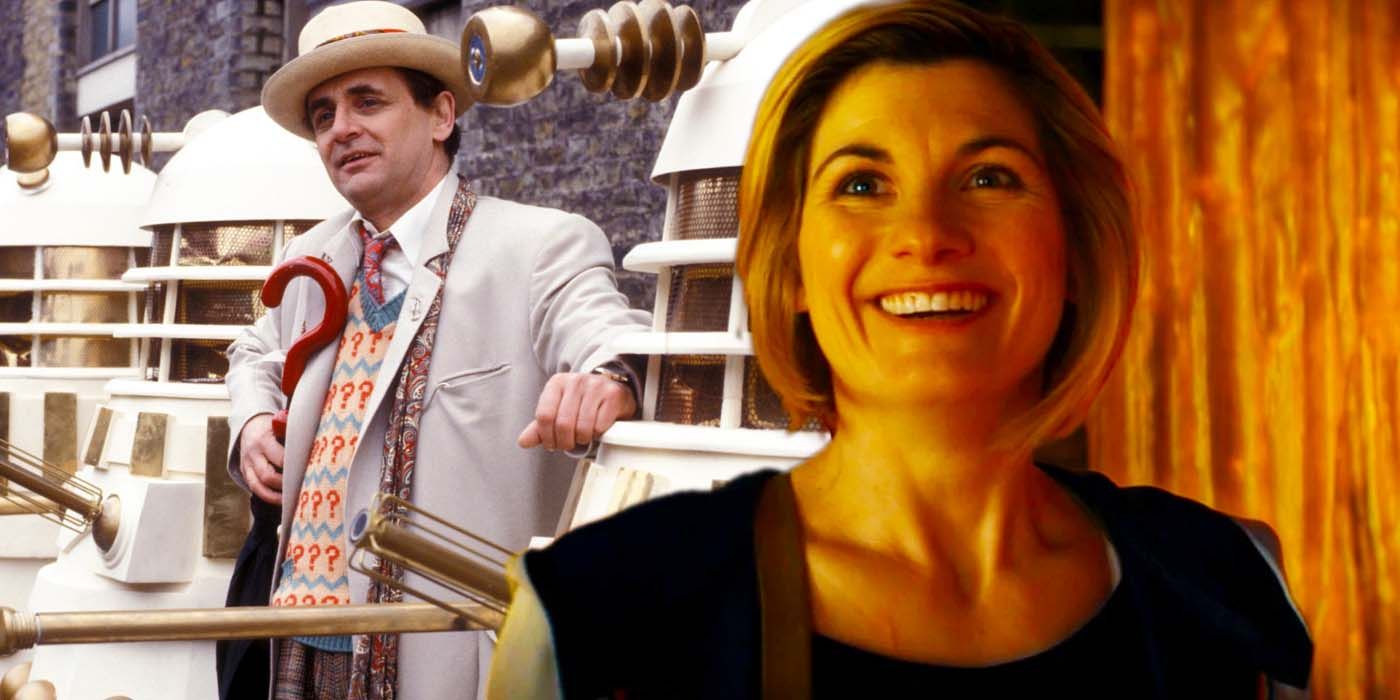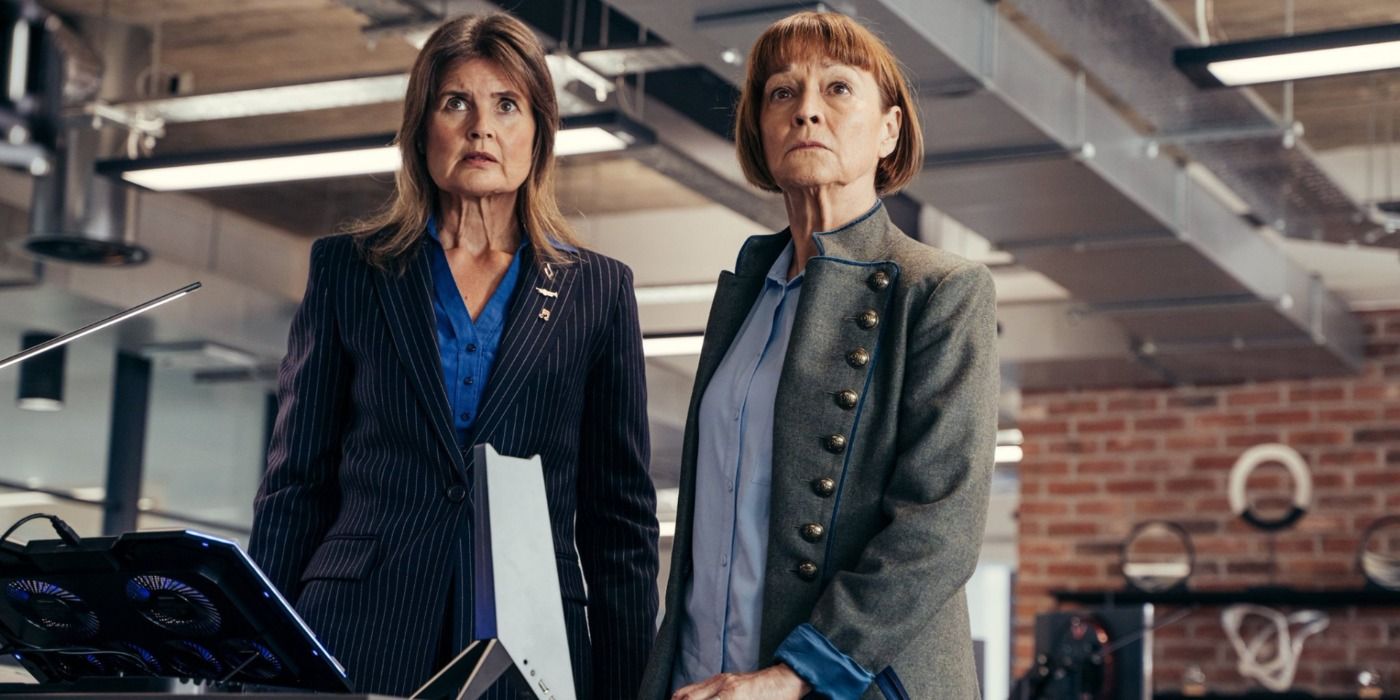The Doctor Who centennial special will bid farewell to Jodie Whittaker’s thirteenth Doctor and can also fix an era that was hated by the BBC. The trailer at the end of “Legend of the Sea Devils” revealed the return of two companions from the 1980s, a period when Doctor Who was in considerable trouble. While there was still support for the series from viewers, the show was hated by those higher up in the BBC, who had overall responsibility for the show. In Whittaker's last episode, Doctor Who has a chance to redeem this era's reputation.
Back in 1985 then-Controller of BBC1, Michael Grade wasn't a fan of Doctor Who. Two years after the huge celebrations around the show's twentieth anniversary, Grade felt that the show had become too violent, had lost its charm, and couldn't compete with the likes of Star Wars or E.T. Despite Grade's distaste with the cheapness of the series, there was no injection of money or fresh new creative vision when it returned in 1986. The show was left to peter out, unloved by the BBC higher-ups, buffeted around the schedules until Doctor Who's cancellation in 1989.
15 years later, Russell T Davies' rebooted Doctor Who became a flagship series for the corporation, with huge commercial success and global reach in the years that followed. By reintroducing 1980's companions Tegan Jovanka and Ace to the 21st-century era of the show, Chris Chibnall can vindicate the faith of fans during both the 1985 hiatus and 1989 cancellation. As well as bidding farewell to both Jodie Whittaker and Chris Chibnall, the upcoming special can rehabilitate this maligned era, positioning it as an integral part of the history of both the BBC and Doctor Who.
Even Chris Chibnall was a critic of the series in the 1980s, appearing on the audience feedback show Open Air to publicly criticize the writers of Sixth Doctor story "Terror of the Vervoids," Pip and Jane Baker. He claimed that the series had become too routine and the plotting too complicated. The Chibnall era of the show has been similarly divisive, and social media is filled with the sort of scathing audience criticism that Chris Chibnall himself once espoused. In a neat bit of karma, Chris Chibnall's Doctor Who is bearing the brunt of the type of critical fan that he once was. However, his inclusion of the 80s companions in his final story as showrunner demonstrates his belief that his youthful comments were nonsense. In bringing these characters to a monumental, celebratory special on primetime TV, he can fix public perception of the 1980s version of the show and atone for his own youthful criticisms.
Having Sophie Aldred, in particular, appear in this momentous episode, demonstrates how far Doctor Who has come since 1989. Rather than being pitted against more popular shows in the schedules as it was in the 1980s, Doctor Who has been chosen to celebrate 100 years of the BBC alongside the very best of the corporation's output. As Sophie Aldred and Janet Fielding return alongside Jodie Whittaker's Doctor to celebrate 100 years of the BBC, Doctor Who finally rehabilitates this much-maligned era from the doldrums. It positions 1980s Doctor Who not as a period when the show was cheap and nasty as Michael Grade claimed, but as a loved and respected part of the show's overall legacy. In celebrating the rich histories of both the BBC and Doctor Who this October, Jodie Whittaker's final episode can finally banish the specter of 1985's hiatus and 1990's cancellation, as the show looks towards a bright future in the hands of Russell T Davies.


